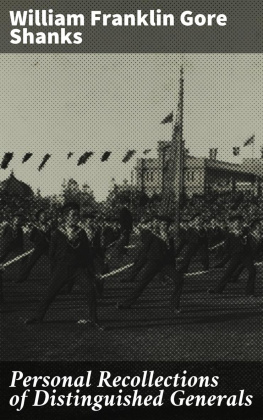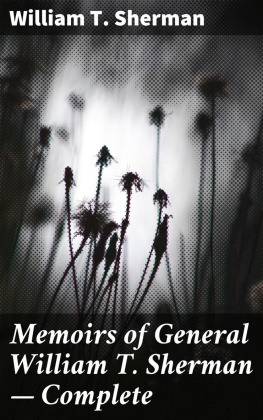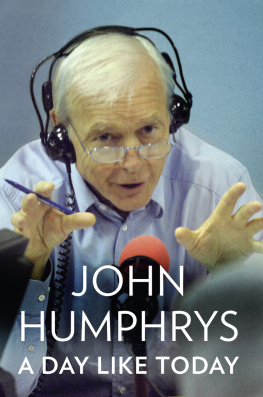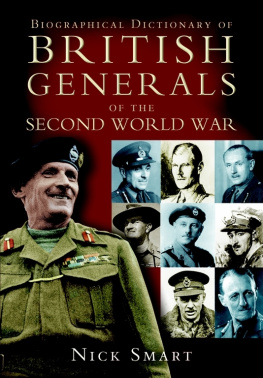AN OLD SOLDIER
Dedicates
TO THE
OFFICERS OF THE BRITISH ARMY
THIS UNPRETENDING EFFORT
TO PLACE BEFORE TEEM EXAMPLES TO EMULATE WHILE
THEY ADMIRE;
IN THE FIRM CONVICTION THAT THERE ARE MANY
AMONGST THEM WHO WILL ACHIEVE
EQUAL HONOUR
WITH
EQUAL OPPORTUNITIES.
This edition is published by PICKLE PARTNERS PUBLISHING
Text originally published in 1856 under the same title.
Pickle Partners Publishing 2011, all rights reserved. No part of this publication may be reproduced, stored in a retrieval system or transmitted by any means, electrical, mechanical or otherwise without the written permission of the copyright holder.
Publishers Note
Although in most cases we have retained the Authors original spelling and grammar to authentically reproduce the work of the Author and the original intent of such material, some additional notes and clarifications have been added for the modern readers benefit.
TABLE OFCONTENTS
PREFACE.
THE leading object of the work now presented to the Public has been to bring together, in a connected series, and within reasonable compass, an account of the military services of many eminent men who fought in the same wars, under the same leaders, and with the same object. We were then opposed to Francewe are now her close ally; and the new-born friendship is as likely to be enduring, as it will assuredly prove advantageous to humanity, civilisation, and the general advancement of the world. But history cannot be falsified, neither is it necessary to forget or gloss over truth, because the shifting tide of events has changed the current of national feeling. We rejoice in the unexpected alteration, and pray that it may be permanent. Let us trust we are true prophets when we apply a line from Shakespeare, and say, "Our children's children shall see this, and bless Heaven!"
During the last general war, the English arms achieved great successes, and we value doubly the friendship of the gallant enemy, who fought us fairly and openly on all occasions, gave us such an infinity of trouble, and established a mutual esteem on so many desperately contested fields.
Four of the individuals included in the present selection have already furnished subject-matter for long and interesting volumes. The events in which they, and the companions now associated with them, participated as important agents, have been so often described, that much novelty is not to be expected in incident, however it may be admissible in inference. The historian or biographer, like the navigator, must be guided by safe beacons previously laid down for him, or he will run his vessel aground. He cannot, for the sake of effect, soar into the realms of invention, or give the rein to the dominion of fancy. If he does so unadvisedly, he will incur the danger of being ranked as a fabulist with Marco Polo, Sir John Mandeville, and the Baron de Tott. To write clearly and truthfully, he must seek out the best authorities that have preceded him, weigh the value of their evidence, select the authentic and cast aside the doubtful; and must, in some sort, consent to be considered a compiler rather than an original composer. In a poem, a romance, or a tale of imagination, we may inventa history we cannot choose but follow. This qualified classification may not accord with the high aspirings of vaulting ambition," but it should satisfy a moderate mind, as it is better than being told, as Sheridan once sarcastically said to another honourable member, that "you are indebted to your memory for your jests, and to your imagination for your facts."
Many differences of opinion will probably be expressed as to the judgment displayed in the present selection. Some readers may say, why is this General preferred, and that General omitted? The answer is, that it was necessary to make a limit, and that the work is offered, not as comprising the whole, but as merely a small cohort from the distinguished band. It will be easy to add to the list if more should be required.
Fourteen generals of repute are included in this list. One only of the number was what may be termed old Sir Thomas Graham and he was only sixty when he fought and won, with marvellous promptitude and audacity, the Battle of Barrosa. The rest were in the prime vigour of their days, with strength and activity of body which seconded the energy of the mind. Without this happy combination of mental and physical attributes, the duties of a general in the field will hang heavily on him who has to perform them.
Some of our late commanders in the Crimea have been mercilessly twitted with the sins of age and accompanying inactivity; but the charges are more easily made than proved. It is no fault of theirs, nor was it by their own desire, that a long peace has hung them up to rust for forty years, when many of them would much rather have been oiled and sharpened by constant employment. But events have shown, that on the day of battle the seniors have shaken off the weight of time, and have sprung into their saddles as if they had tasted the elixir of renovating youth.
The writer of this Work entered the army at a very early age, with good prospects, a regular military education acquired at the College at Marlow, and a strong desire to get onbut he had no money. In consequence of this deficiency he was repeatedly purchased over, and this was a leading reason, amongst others, why he turned his thoughts into a different channel. Yet he feels bound in justice to admit, that the juniors who, by the regulations of the service and the accidents of fortune, thus stepped over his head, were, with scarcely an exception, fully capable of the position into which they had bought themselves, and zealous in the discharge of their duties. Had it been otherwise, such commanding officers as he served under would have used no ceremony in getting rid of a drone or a blockhead, even though he should have been a scion of nobility or the possessor of thousands.
Much has been lately said and written upon the question of promotion from the ranks, and the propriety of enlarging the narrow principle upon which that mode of rewarding valour and respectability has hitherto been exercised. This subject requires to be considered with tact and delicacy. The encouragement held out to deserving merit in the inferior grades should be increased rather than restricted, and there are many ways by which this may be carried into effect. But the British army is differently constituted from that of any other European power. The enlistment is voluntary, and the soldier knows that his officer is taken from a superior class to himself. He entertains no jealousy on that account. His own ideas, even in his humble sphere, are innately aristocratic, and he likes to be commanded by a gentleman. In this feeling he looks up with as much personal respect to the youngest ensign as to the oldest major; and herein lies the main secret of the rigid and submissive discipline in which the regimental officers of the English army hold their men, and which has no parallel in any other service.








